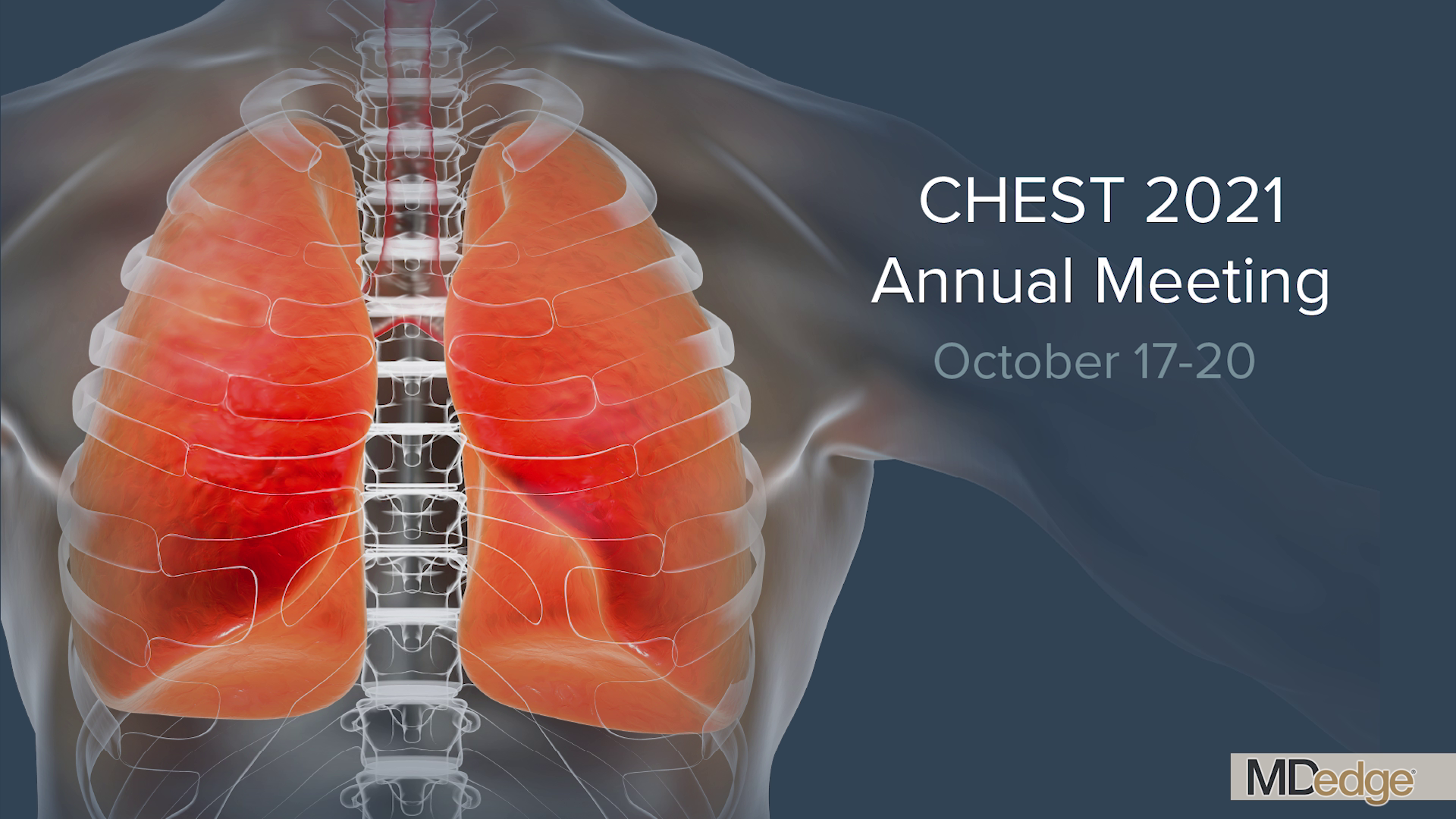User login
Dr Nichole Tanner, associate professor at the University of South Carolina, discusses new data on lung cancer biomarker testing from CHEST 2021.
First, Dr Tanner shares two abstracts that discuss how endobronchial ultrasound (EBUS) demonstrated high-success yields in next-generation sequencing. One of the abstracts looked at EBUS transbronchial needle aspiration in patients with lung cancer, whereas the other examined EBUS-guided fine needle aspiration in patients with nonsquamous non–small cell lung cancer.
Next, she discusses a small study that demonstrated the ability of the Percepta Genomic Sequencing Classifier to successfully reclassify patients in whom bronchoscopy was nondiagnostic. About half of the patients were either down-classified to low risk, which can help to avoid additional invasive procedures, or up-classified to high risk, which can inform next steps for intervention.
Dr Tanner concludes by reviewing a retrospective analysis of the PANOPTIC clinical trial, which used the Nodify CDT test to evaluate a panel of seven lung cancer–associated autoantibodies in study patients who had incidentally discovered indeterminate pulmonary nodules. The autoantibodies were able to detect likely malignant nodules regardless of lung cancer type, histology, or stage.
--
Nichole T. Tanner, MD, MSCR, FCCP, Associate Professor, Department of Medicine, Medical University of South Carolina, Charleston, South Carolina
Nichole T. Tanner, MD, MSCR, FCCP, has disclosed no relevant financial relationships.
Dr Nichole Tanner, associate professor at the University of South Carolina, discusses new data on lung cancer biomarker testing from CHEST 2021.
First, Dr Tanner shares two abstracts that discuss how endobronchial ultrasound (EBUS) demonstrated high-success yields in next-generation sequencing. One of the abstracts looked at EBUS transbronchial needle aspiration in patients with lung cancer, whereas the other examined EBUS-guided fine needle aspiration in patients with nonsquamous non–small cell lung cancer.
Next, she discusses a small study that demonstrated the ability of the Percepta Genomic Sequencing Classifier to successfully reclassify patients in whom bronchoscopy was nondiagnostic. About half of the patients were either down-classified to low risk, which can help to avoid additional invasive procedures, or up-classified to high risk, which can inform next steps for intervention.
Dr Tanner concludes by reviewing a retrospective analysis of the PANOPTIC clinical trial, which used the Nodify CDT test to evaluate a panel of seven lung cancer–associated autoantibodies in study patients who had incidentally discovered indeterminate pulmonary nodules. The autoantibodies were able to detect likely malignant nodules regardless of lung cancer type, histology, or stage.
--
Nichole T. Tanner, MD, MSCR, FCCP, Associate Professor, Department of Medicine, Medical University of South Carolina, Charleston, South Carolina
Nichole T. Tanner, MD, MSCR, FCCP, has disclosed no relevant financial relationships.
Dr Nichole Tanner, associate professor at the University of South Carolina, discusses new data on lung cancer biomarker testing from CHEST 2021.
First, Dr Tanner shares two abstracts that discuss how endobronchial ultrasound (EBUS) demonstrated high-success yields in next-generation sequencing. One of the abstracts looked at EBUS transbronchial needle aspiration in patients with lung cancer, whereas the other examined EBUS-guided fine needle aspiration in patients with nonsquamous non–small cell lung cancer.
Next, she discusses a small study that demonstrated the ability of the Percepta Genomic Sequencing Classifier to successfully reclassify patients in whom bronchoscopy was nondiagnostic. About half of the patients were either down-classified to low risk, which can help to avoid additional invasive procedures, or up-classified to high risk, which can inform next steps for intervention.
Dr Tanner concludes by reviewing a retrospective analysis of the PANOPTIC clinical trial, which used the Nodify CDT test to evaluate a panel of seven lung cancer–associated autoantibodies in study patients who had incidentally discovered indeterminate pulmonary nodules. The autoantibodies were able to detect likely malignant nodules regardless of lung cancer type, histology, or stage.
--
Nichole T. Tanner, MD, MSCR, FCCP, Associate Professor, Department of Medicine, Medical University of South Carolina, Charleston, South Carolina
Nichole T. Tanner, MD, MSCR, FCCP, has disclosed no relevant financial relationships.
